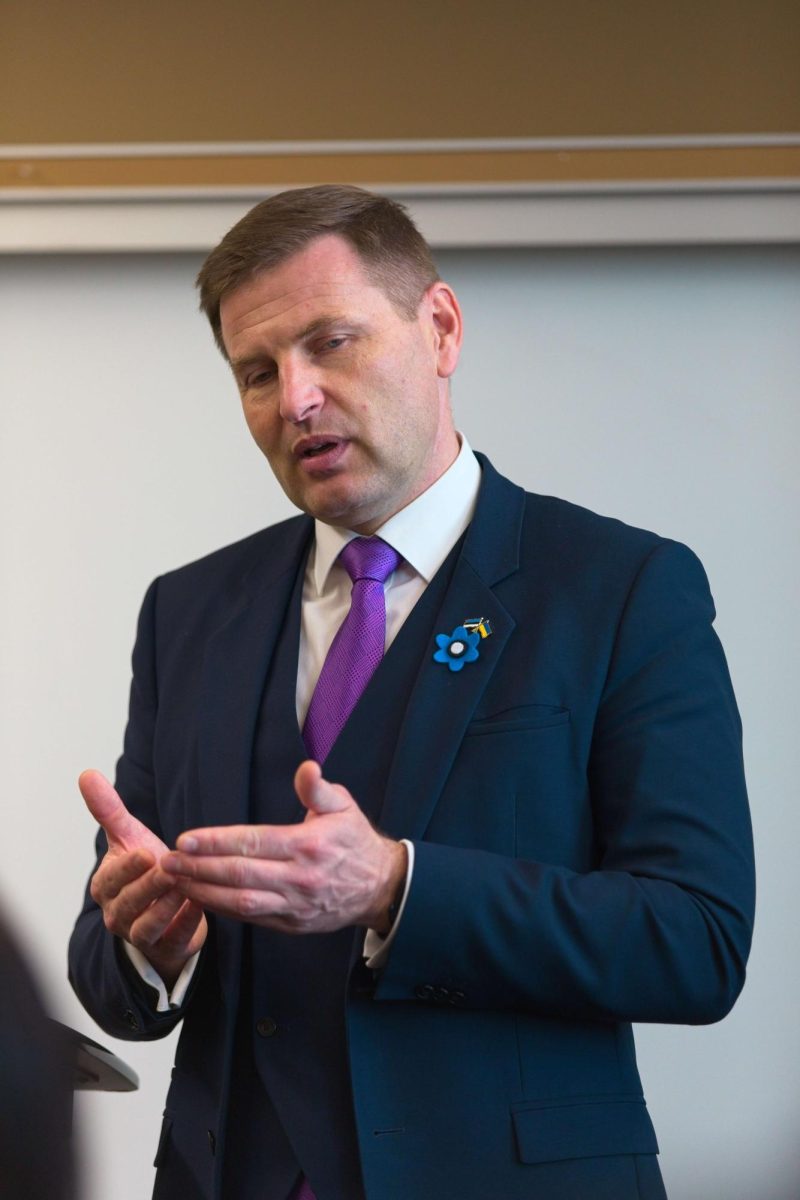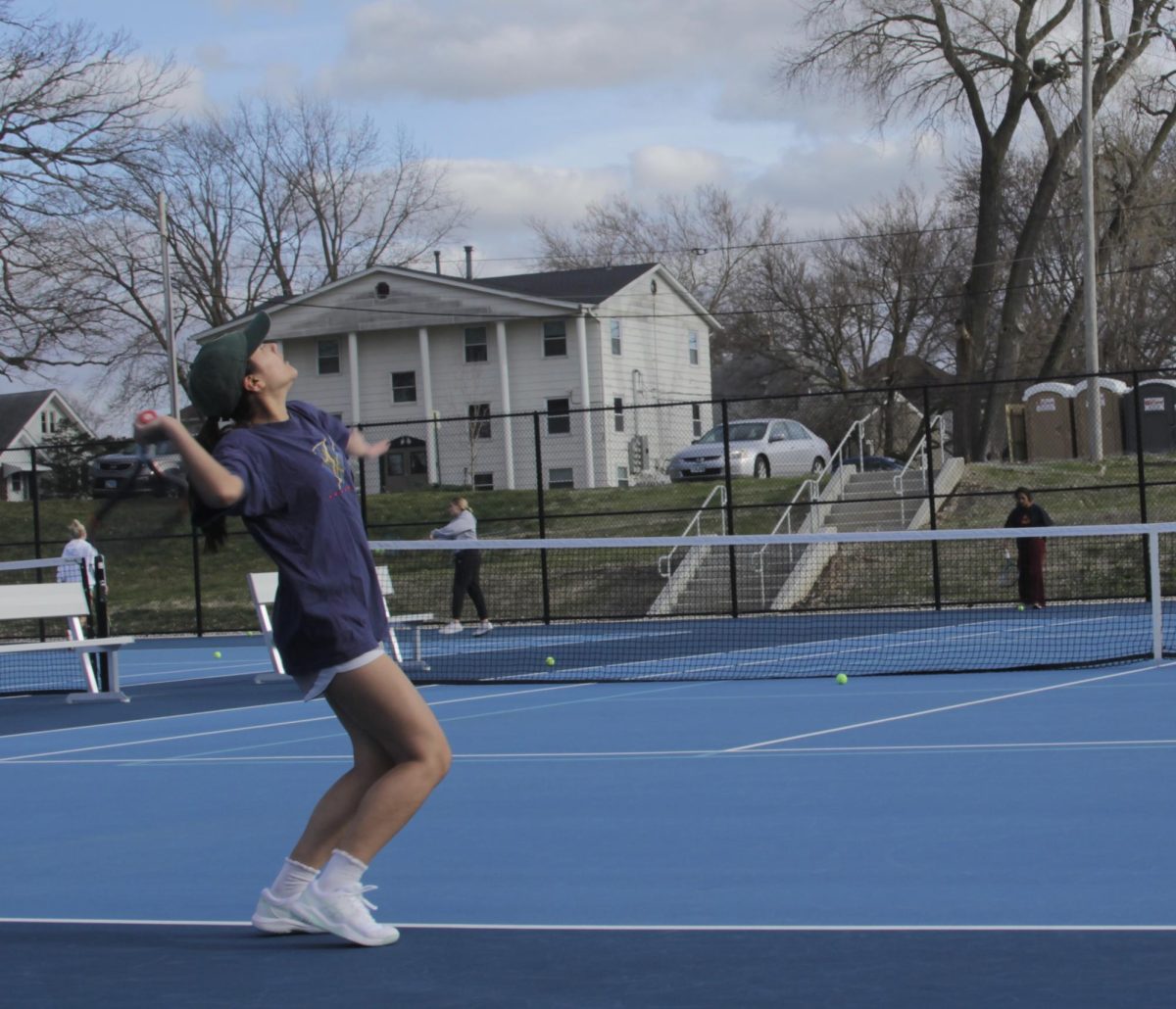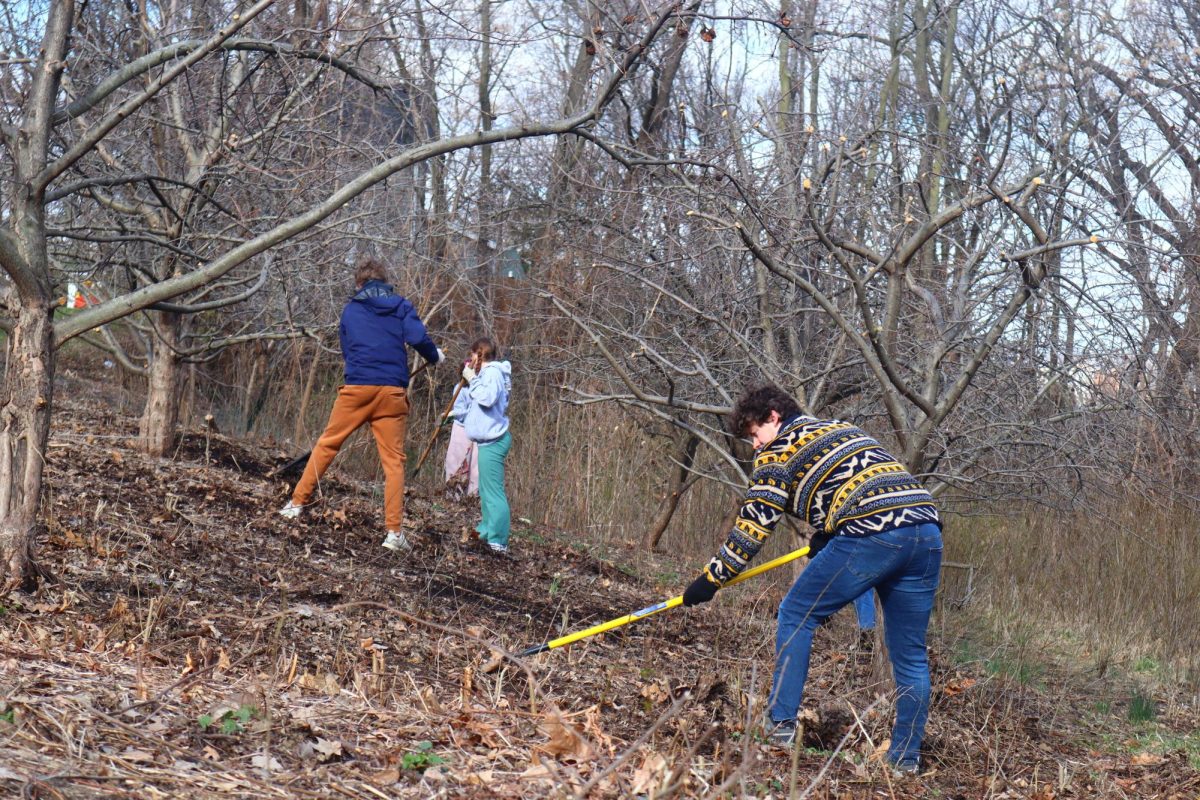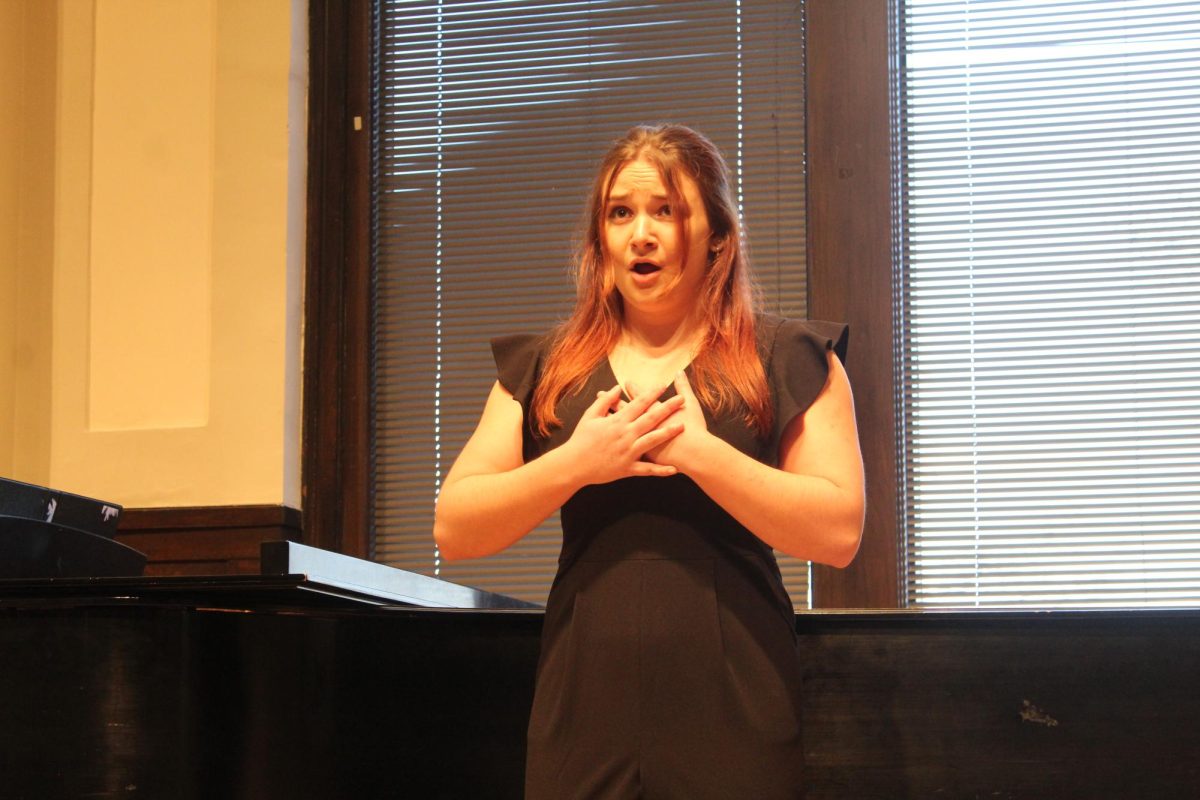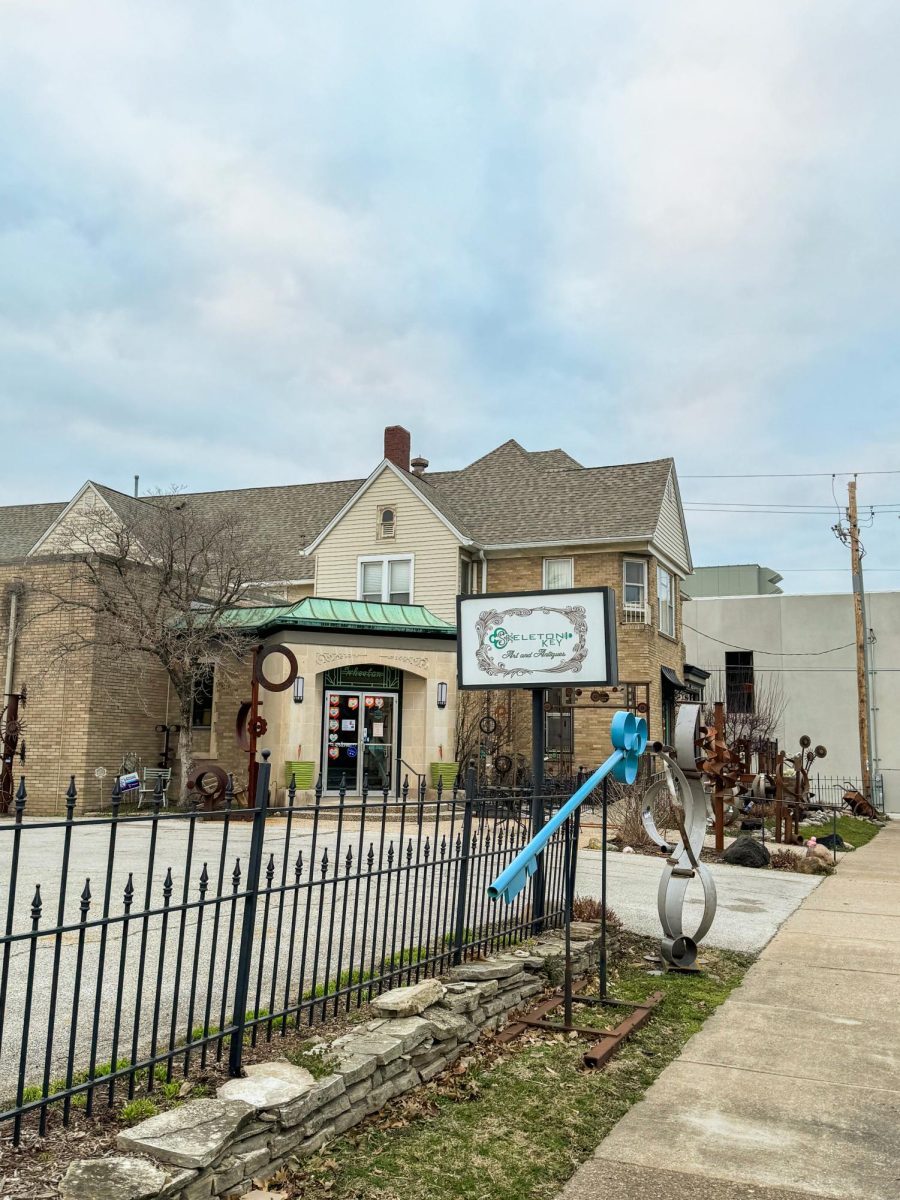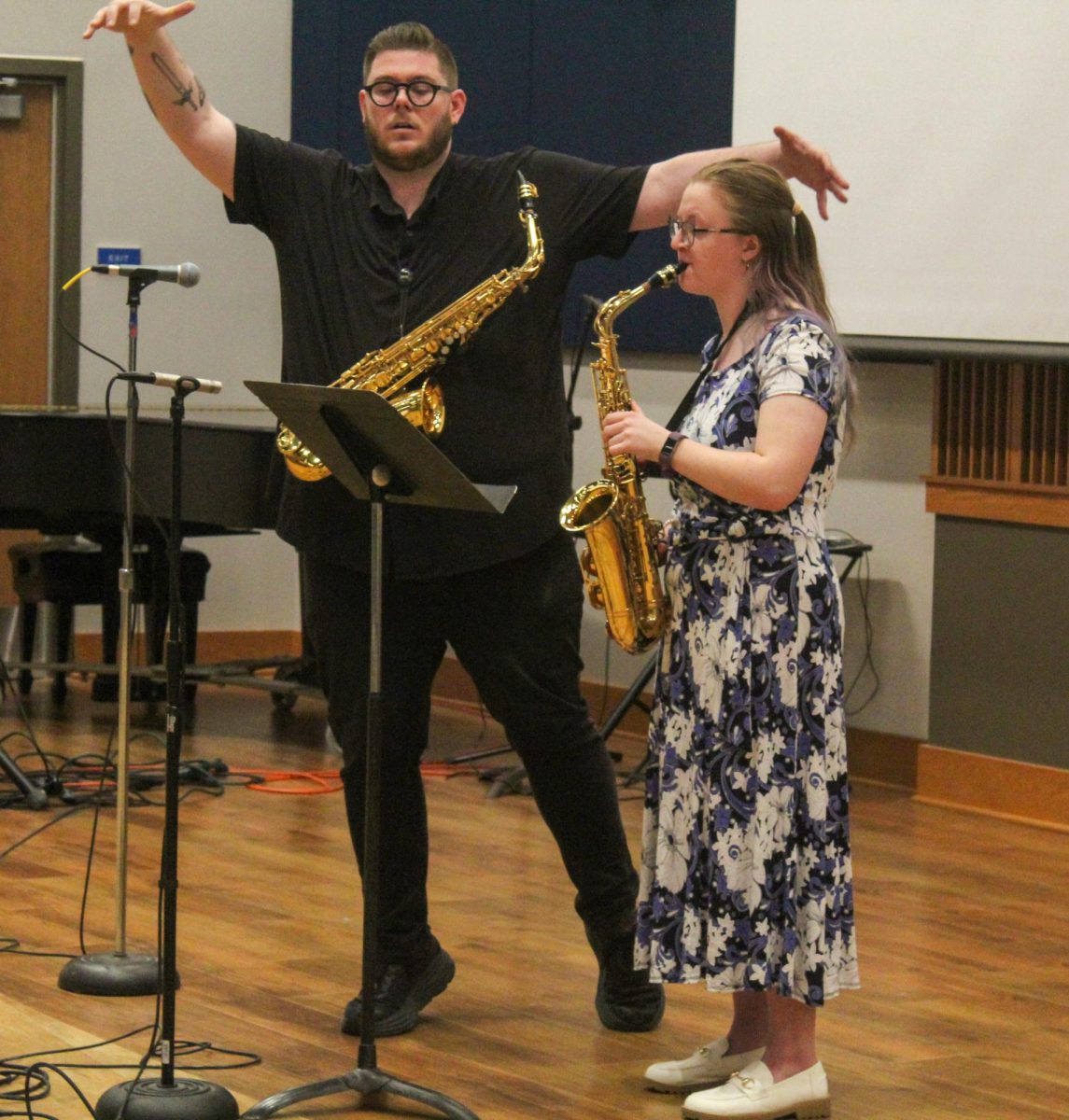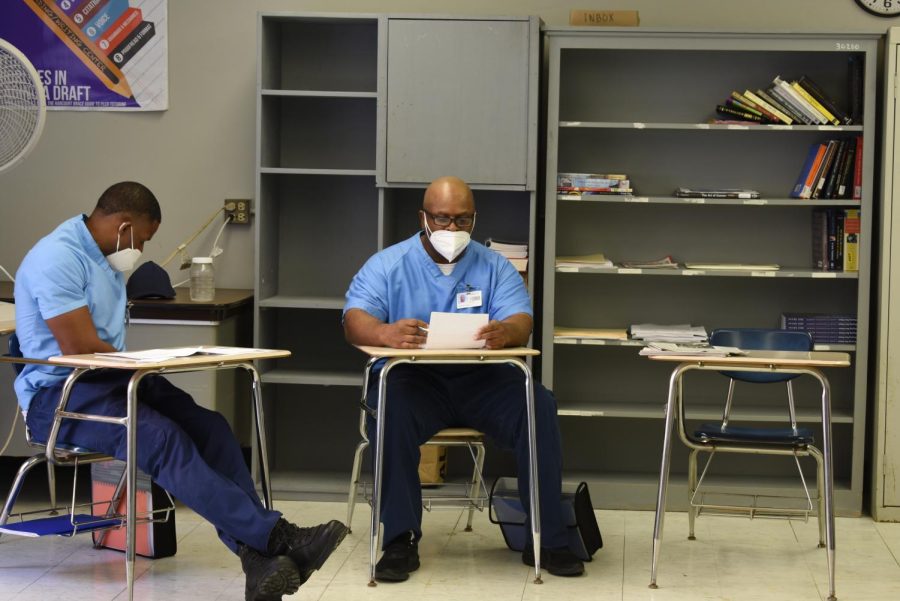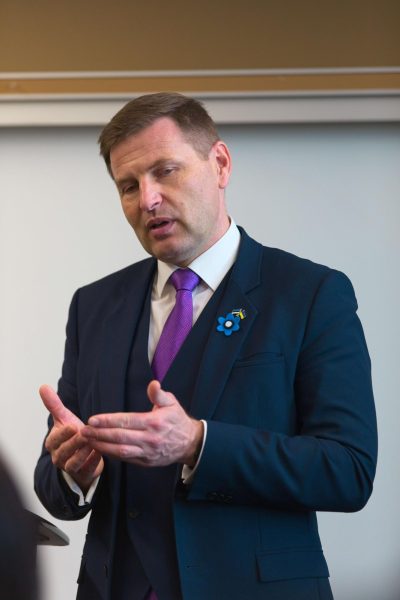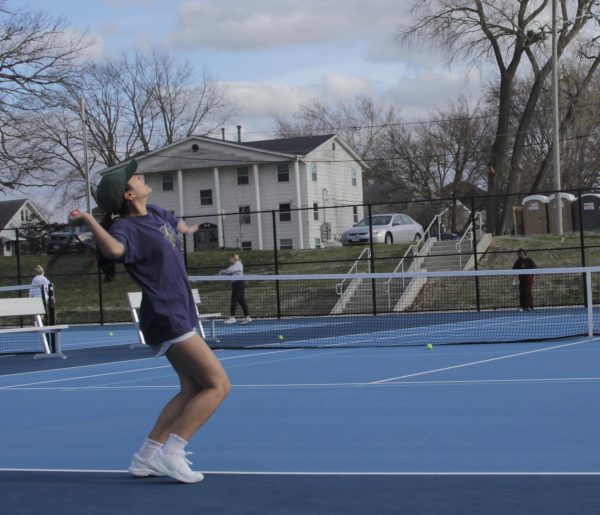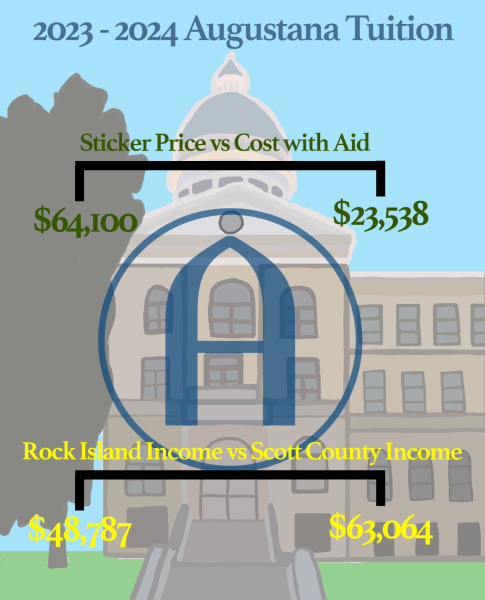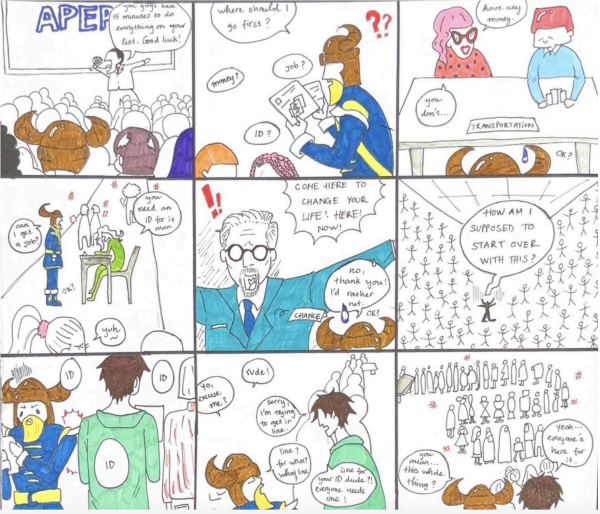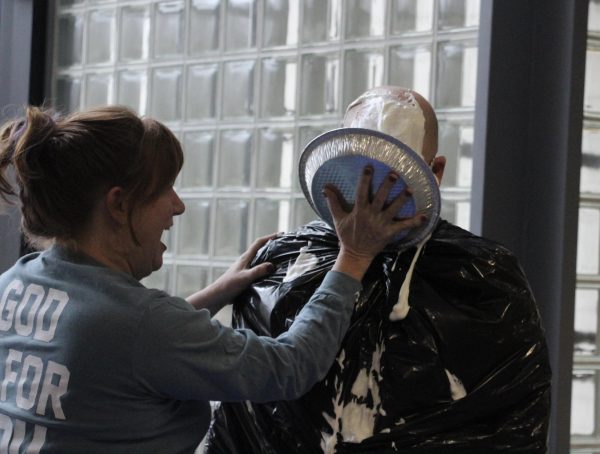For one inmate, the Augustana Prison Education Program paves a way for freedom
David Staples reads notes during an APEP class at East Moline Correctional Center.
October 12, 2022
David Staples, 54, was released from the East Moline Correctional Center on Aug. 12 after serving 29 years for a crime that he did not commit. He was released early with help from good behavior credits, and from the Augustana Prison Education Program, or APEP. APEP is a prison education program that was started in the fall of 2021. In the program, Augustana’s professors travel to the East Moline Correctional Center to teach classes to inmates. Dr. Sharon Varallo is the head of the program.
Staples was 25 when he was sentenced to prison after being found guilty of murder. Throughout his sentence, he maintained his innocence and eventually caught the attention of the Illinois Innocence Project, which is a nonprofit organization that works closely with the University of Illinois-Springfield. The main goal of the organization is to clear the names of the wrongfully convicted. They began working on Staples’ case seven years ago.
Although Staples has not been fully exonerated yet, his legal team at the Illinois Innocence Project is working hard to clear his name of any wrongdoing.
Lauren Kaeseberg, the co-director of the Illinois Innocence Project, joined his legal team as soon as the non-profit took his case.
“From day one when I met him, I was like, ‘he does not seem like the kind of person who could’ve done this type of crime’,” Kaeseberg said. “As we represented him, the evidence really laid out that he is innocent.”
Even though the evidence was there to clear Staples name, the justice system was slow moving.
“The legal system takes years. In his case, decades,” Varallo said. “It is not a self-correcting system by any means. It’s like an anti self-correcting system. There’s many instances of a legal ruling, even in the face of hard evidence that it was wrong, they don’t want to admit it.”
The Illinois Innocence Project was able to get him out of the East Moline Correctional Center because Staples had earned enough good time credits to shorten his sentence, both by working within the prison and also by being a part of the Augustana Prison Education Program, or APEP.
Varallo met Staples in the summer of 2021, when he first applied to be in APEP.
“I got to know him from teaching him in two classes,” Varallo said. “He came in like a lot of students, with a healthy skepticism of the program. By the end of the year he was telling really dumb dad jokes… and he grew to be a well-respected mentor to some of the younger men there.”
Staples attributes the initial skepticism that he and other inmates felt to the failure of other prison education programs in the past.
“You come to learn that they’re pretty much just there for the [prison] staff to have a job,” Staples said. “So if you go in and you don’t apply yourself, you don’t get anything because nobody is holding you accountable.”
Both Varallo and Dr. Donna Hare, a professor at Augustana and a new addition to the APEP staff, have said that one of their favorite parts about teaching for the APEP program is watching their students realize that they are smart enough to do the work that was being assigned and to do it well.
“They’ve been told all their life that you’re only this smart,” Hare said. “Reading [the assigned texts], they’re like wait a minute, I don’t have to look at myself this way.”
The same can be said for Staples; not only did he earn 34 credit hours in APEP, but he earned the 34 credits with good grades. Like most students, Staples was initially quiet during class, but his confidence grew as the program progressed and as he realized that APEP was different from the other prison education programs that he had been a part of in the past.
“What you see over and over again is the passion that (the APEP staff) come in with,” Staples said. “They understand that they have something you need and they don’t have any qualms about trying to make sure you get it. These people are serious, and they want to be a part of something that’s transformative, that could probably change the trajectory of your life.”
Kaeseberg, although not directly involved with the program, was able to attest to the impact of APEP as well.
“Being able to follow along David’s journey with him on the sidelines and observing how impactful the prison education program was, was also really inspiring,” Kaeseberg said. “Those kinds of programs are so critical to keeping people’s spirits up and keeping their hopes up, letting them know that they’re not forgotten and that there is a place for them in this world… it’s so critically important. I’m forever grateful that David got to be a part of it.”
Now released from prison, Staples has aspirations for the future. However, he has found it difficult to set long-term goals for himself.
“Being in prison, you use all your time to concern yourself with that day,” Staples said. “And I really haven’t moved from that mode of thinking yet. So today is good. I know that I do need to, at some point, project a little further into my future. But I kind of stay in the moment still.”
One of the long-term goals that Staples has been able to set for himself is to eventually become a counselor. He said he one day hopes to help others going through similar situations and hopes to help people adjust after they’ve been released from prison.
Despite the fact that Staples has spent more than half of his life in prison, he has remained adamant about the fact that he doesn’t want his story to be one of suffering. More than anything, he hopes that his case shines light on all the innocent people who are still incarcerated, and on the system that allowed them to be put away in the first place.
“I’m not the last one,” Staples said. “There are others, guys I left behind. I know the conversations and I’ve heard the details of what they’re going through. I wasn’t the last one that was innocent … I definitely wasn’t the first and I certainly wasn’t the last.”
Varallo, having gone through a similar situation where her daughter was falsely accused, agreed.
“There’s so little accountability in the system,” Varallo said. “There’s still innocent people locked up. But he explicitly does not want his story to be about suffering. He doesn’t want this to be his legacy.”
Staples has plans to start his on-campus education in Spring 2023 at Augustana College. He hopes to major in psychology and eventually go into graduate school.

